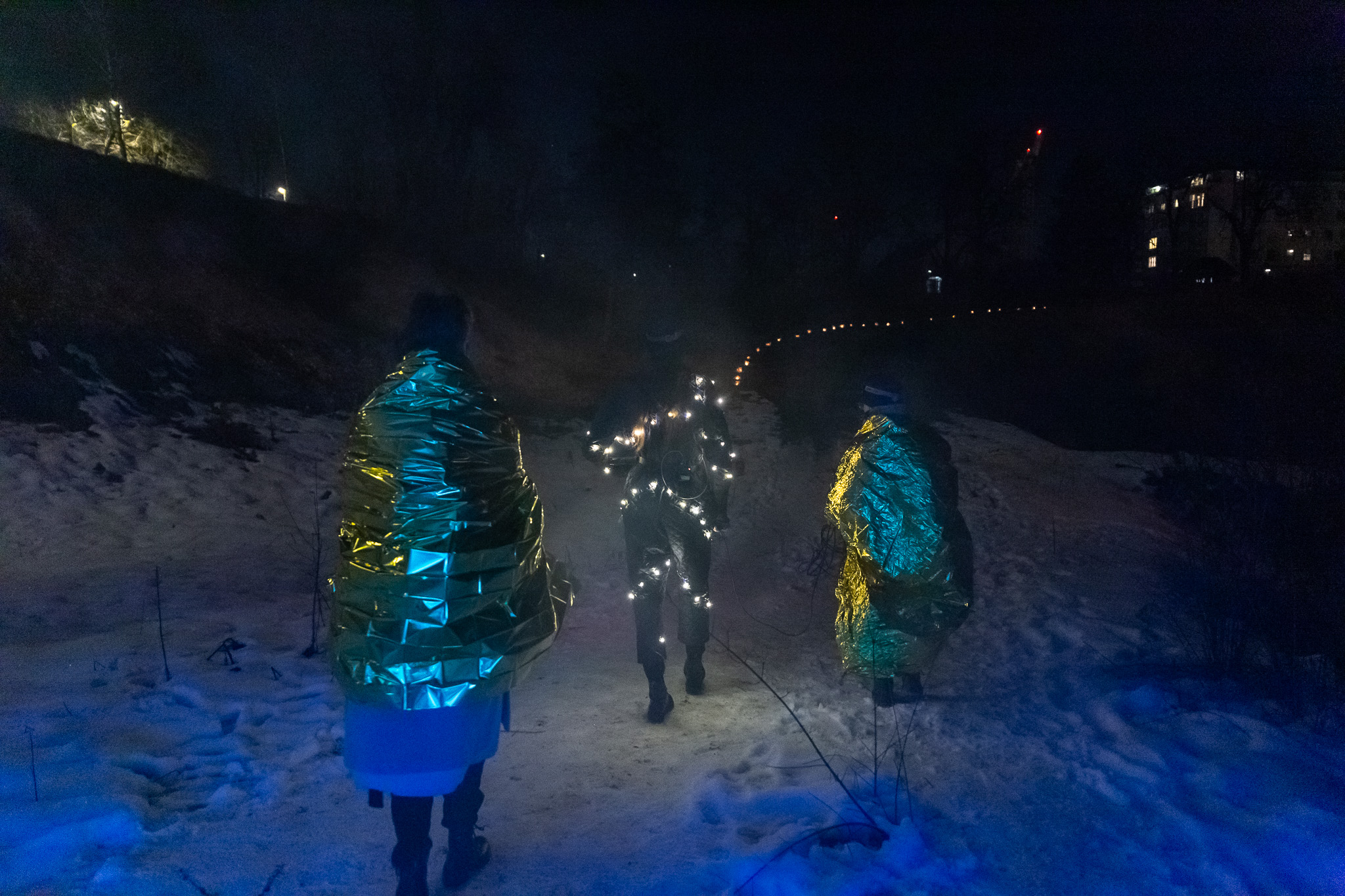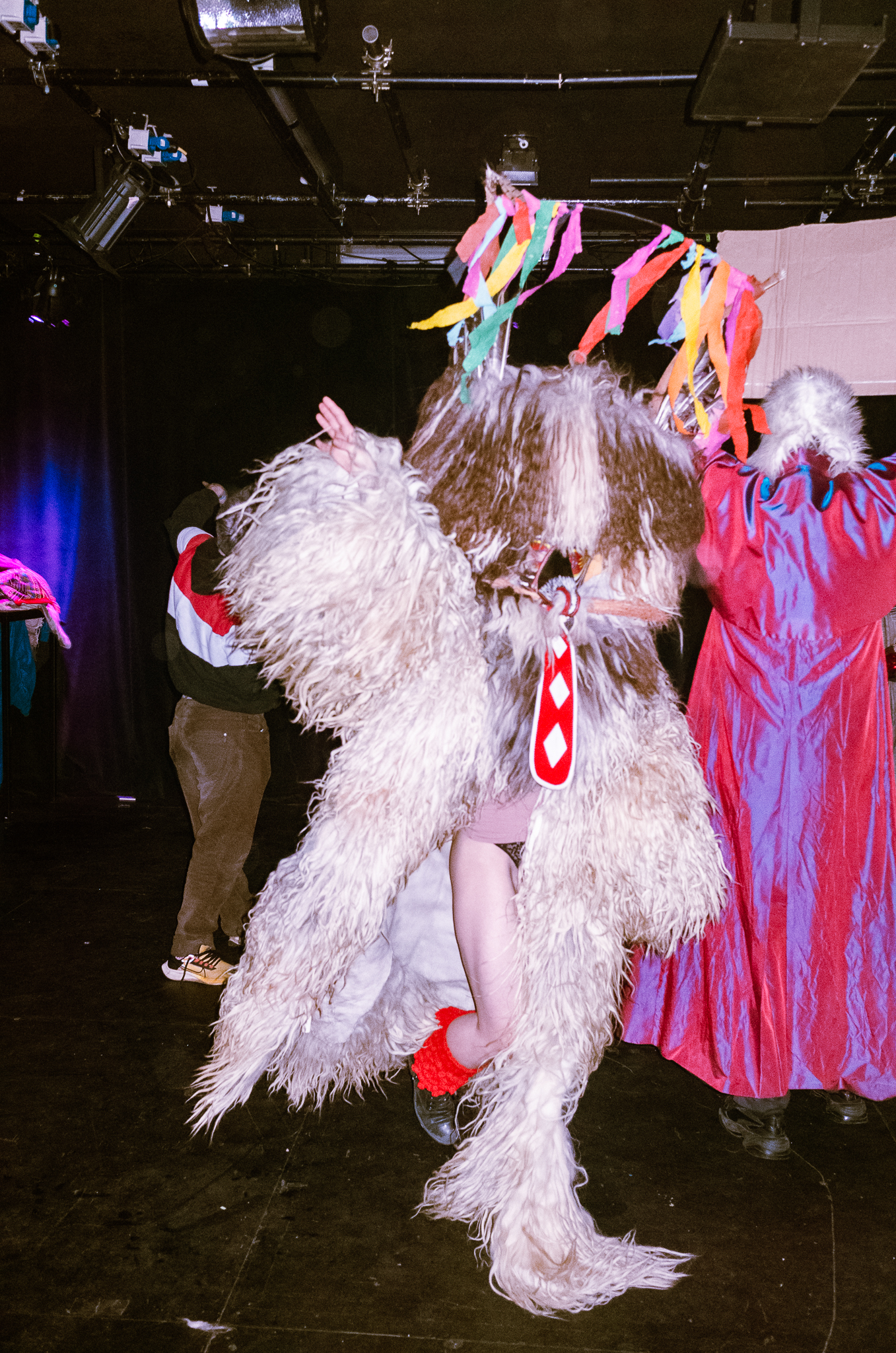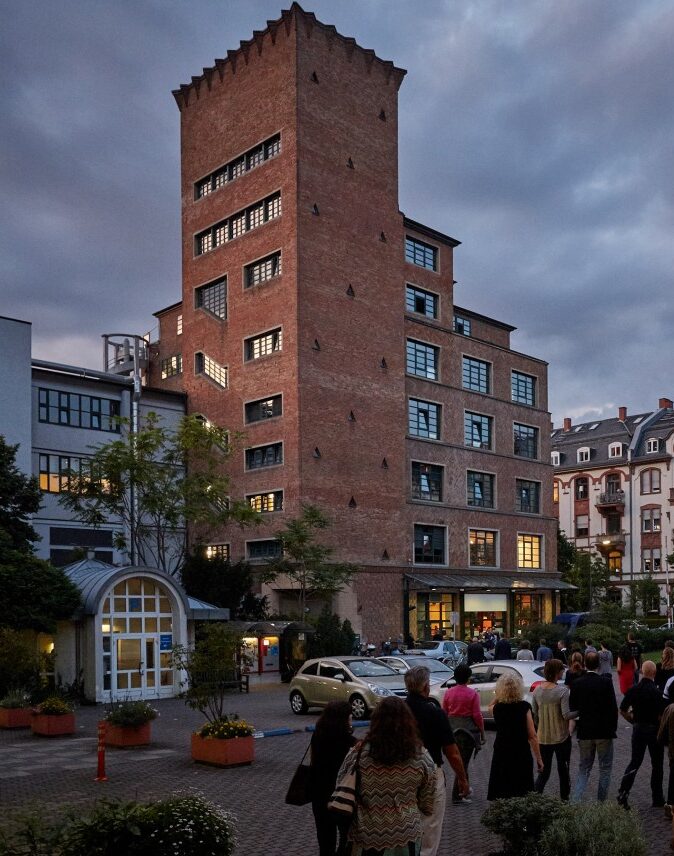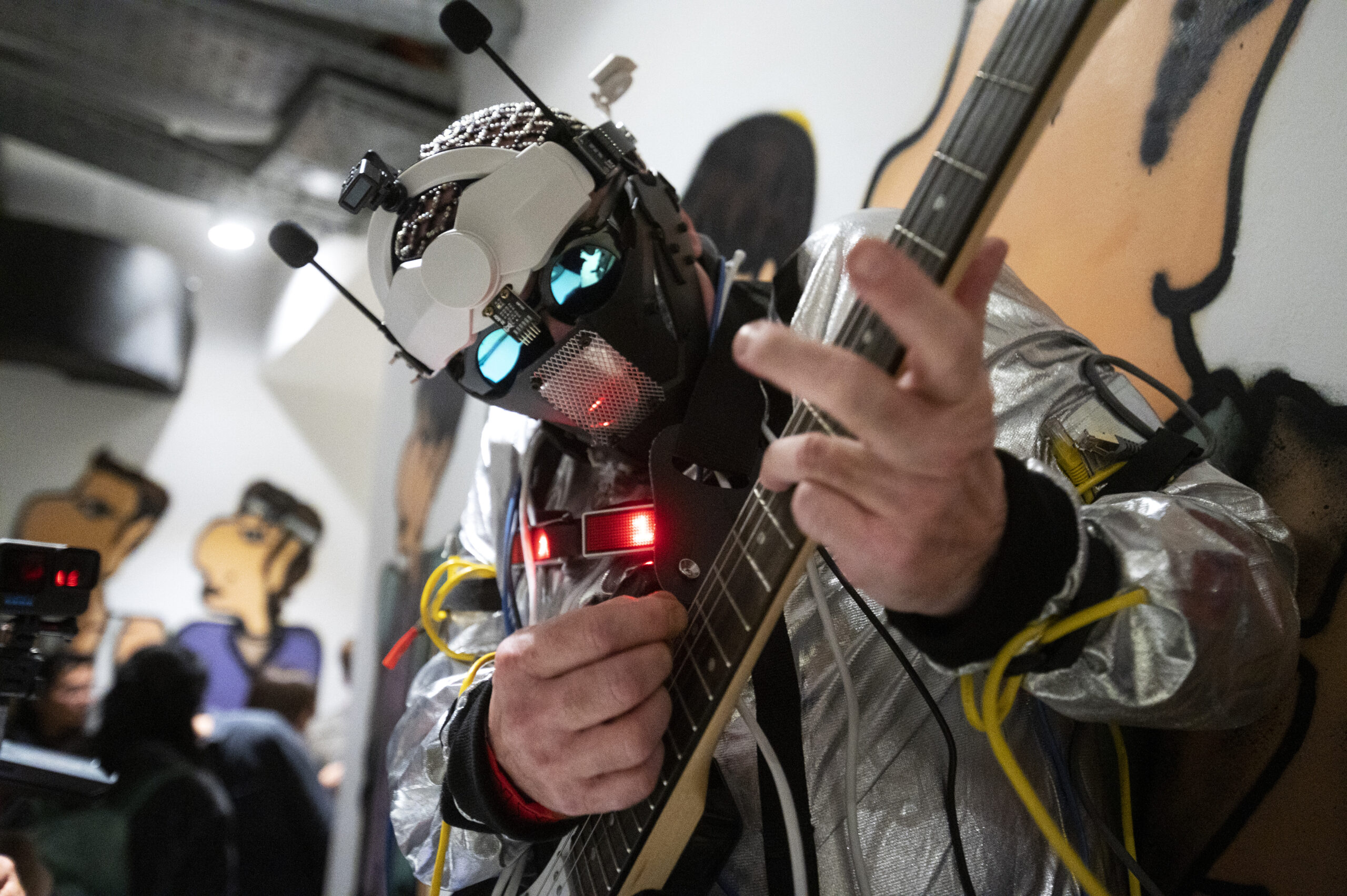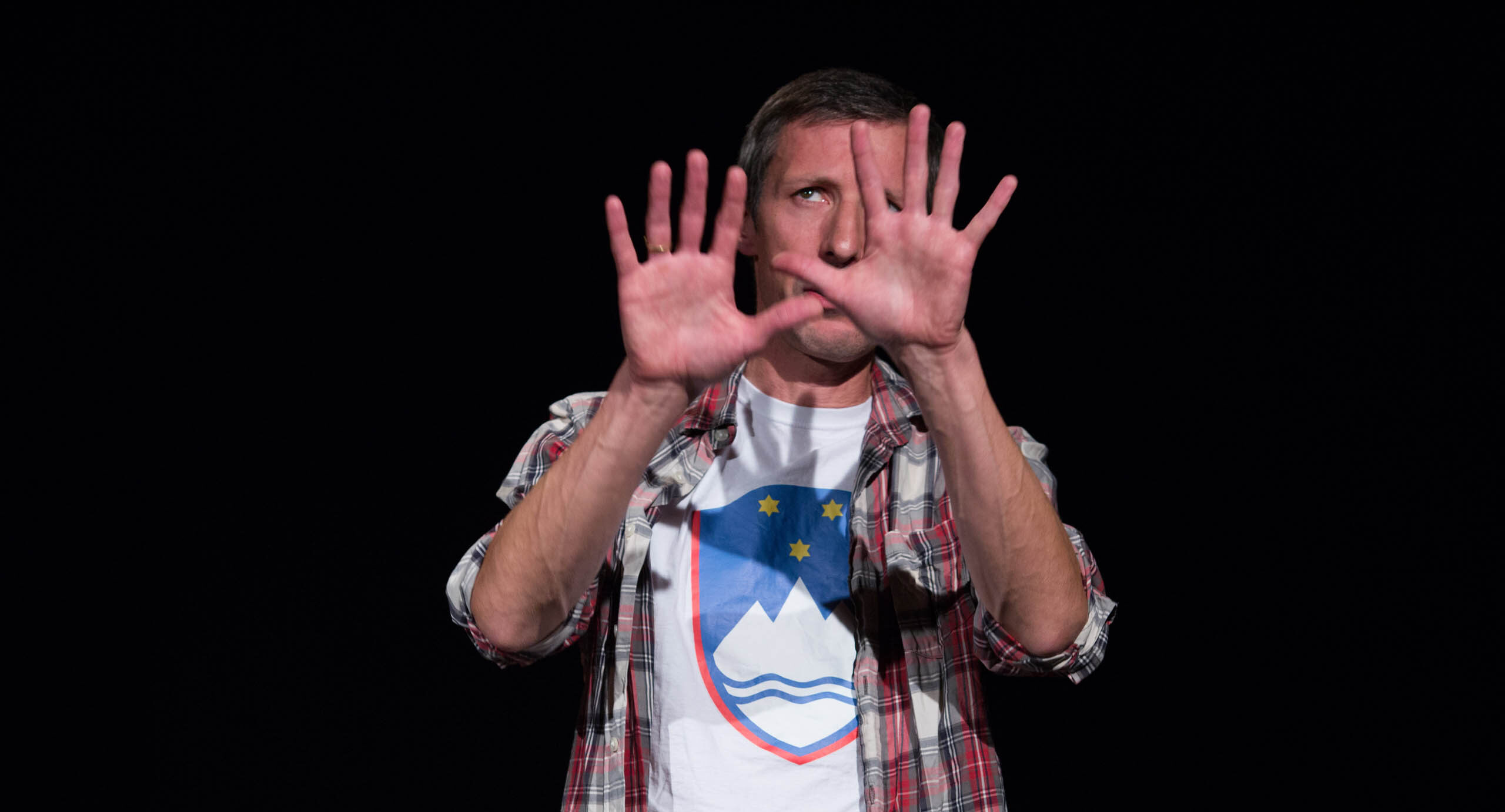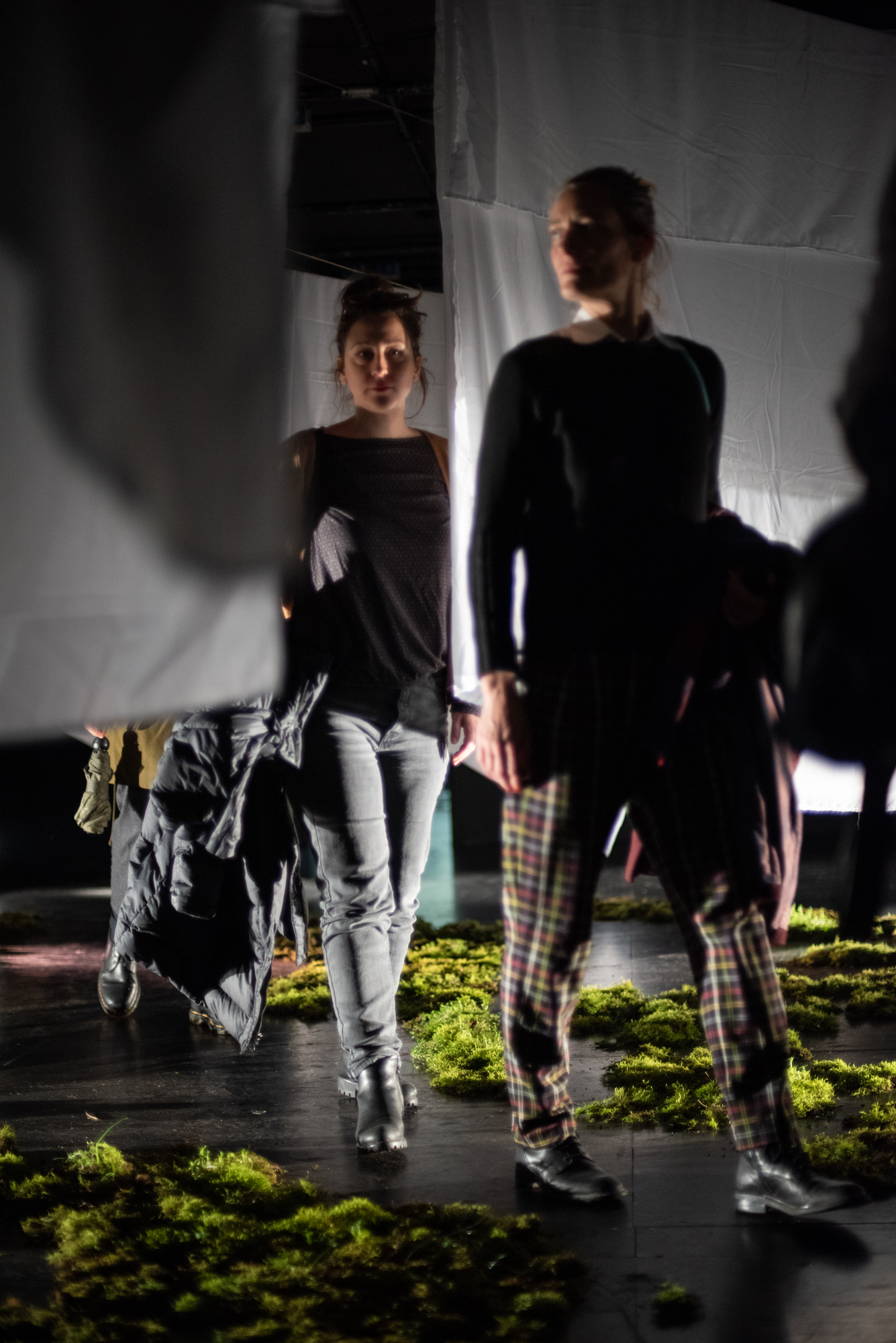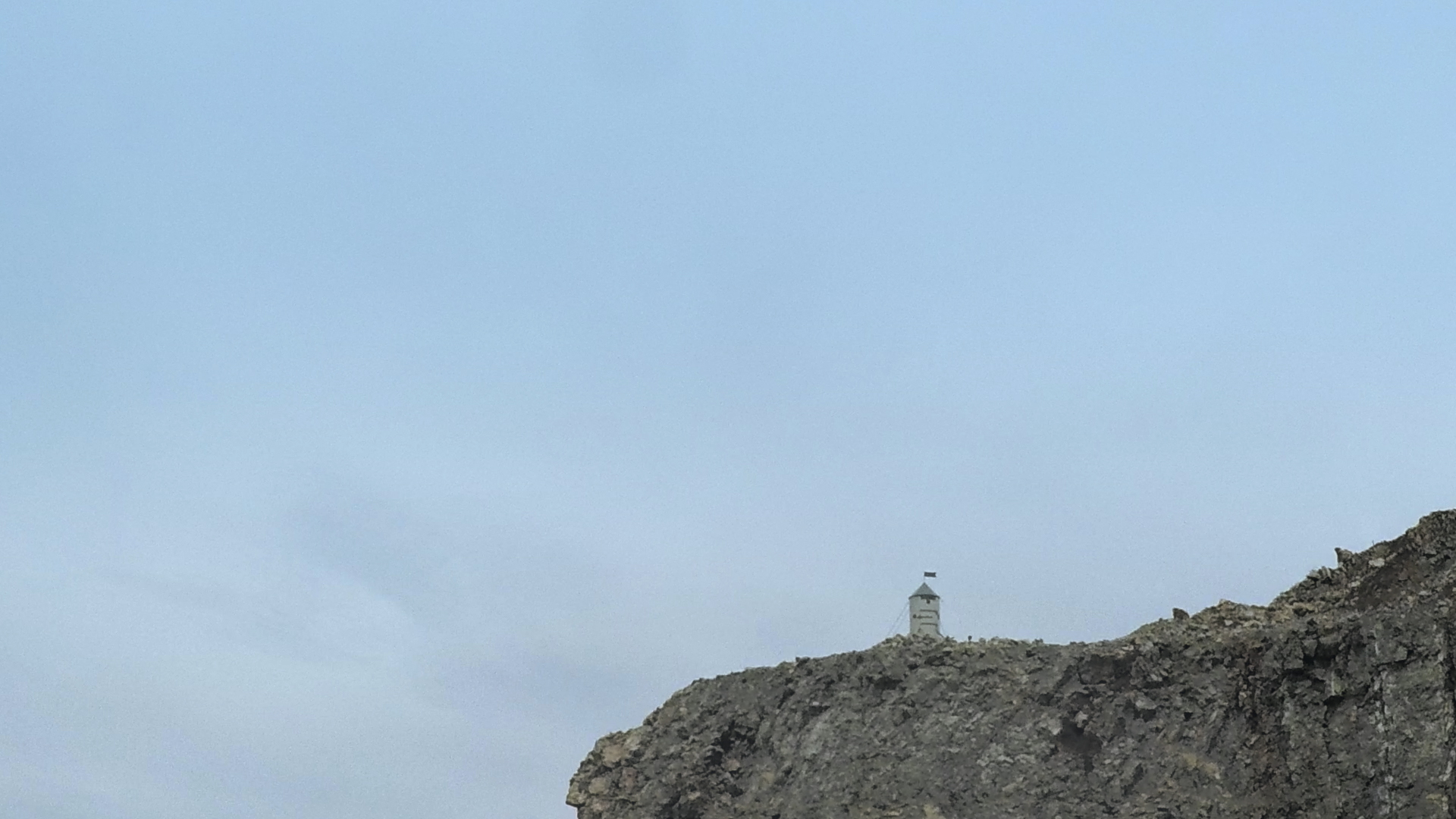Eclipse: The Mysteries of Orgasm

The scientific view of the female orgasm has changed over the centuries – until after the Second World War, when empirical findings became crucial and the similarities began to be emphasised between female and male orgasm, which became an indicator of sexual achievement and peak pleasure. Recent studies demonstrate that the clitoris is the primary source of arousal of the senses to trigger orgasm and that clitoral and vaginal orgasm are biologically indistinguishable.
In 2006, the Eclipse duo made the performance The Mysteries of Orgasm – a Study, which aimed to present the results of this study to the public 17 years later in the form of a lecture in a dissecting room, as depicted in Rembrandt’s painting “The Anatomy Lesson of Dr. Nicolaes Tulp”, except that the audience would focus on the vagina.
In the meantime, the duo decided on a more democratic way of presenting their findings, not ex cathedra, but in the form of a conversation between artists of several generations and visitors. The performance will bring together three generations of women talking about orgasm: the Eclipse duo – the middle one, Vlasta Delimar – the older one, Alma Gačanin – the younger one.
- FRIDAY, 29. 9. 2023, 19.00–19.45 , KINO ŠIŠKA – Katedrala Hall
A conversation as performance
Authors: Tandem Eclipse, Vlasta Delimar, Alma Gačanin
Production: Maska Ljubljana
The event will be held in several languages.
Zala Dobovšek
The Eclipse Tandem was founded in 1999 by visual artists Samira Kentrić and Tina Kolenik, who have since collectively conceived all the tandem’s concepts and performances. Their entry into the art scene is still remembered as quite notorious, as their installation Breakfast on the Grass, almost 25 years ago, shocked not just the art scene, but the entire region. Since its very beginnings, the Eclipse Tandem has included extremely independent approaches to performing in the sphere of performance and the visual arts, standing out both on the level of content and execution, as well as social critique. Its aesthetics have always been accompanied by an interdisciplinary language of art elements, installations, and performativity, while critics often describe its genre as ‘soft porn kitsch’. Through processes of subversion, cliché, camp, ritual, or mere seeming triviality, Kentrić and Kolenik have always opened strong connotations of social comment. All their performances present new horizons for looking at art and critically seeing the (problematic) state of the world. Based on chosen topics, ranging from ironic objectification of the female body to subverting national symbols, the artists have sought a key mood effect with the audience: discomfort – a discomfort stemming not only from what was happening on stage, but mainly from the voyeurism of an audience faced, often through unusual stage constellations, with unfamiliar, delicate, and extremely intimate body positions of the artists (the peep-show effect). Every project is marked by a calling to affirm non-normativity (in the widest sense of the word), and today the format of their activity and critical stance can be defined as queer aesthetics. The Eclipse Tandem oeuvre always subtly questions the meaning and effect of naked skin on stage; using it, the artists constantly research the potential of the vulnerability of one’s own body as well as the body of the other, while always walking the thin yet precisely conceived line between the pleasure of performing and the anxiety of observing. Their performances often seek the soft, weak points of audience members, frequently finding them in their own sexuality. At a distance, they use kitsch aesthetics to critically problematise the position of women, toxic stereotypes in society, and internalised systemic hierarchies. In an interview, they say: ‘We have always loved the aesthetics of kitsch, the oversaturation of images. Elite culture is, above all, ascetic; the existence of every detail has to be justified by its function, that’s what we were taught for years in schools, we were taught select taste. Kitsch is not that, kitsch cannot to be found in schools and that is precisely its advantage, the lack of concern for what it is worth and what it means, kitsch is outward-looking and wants to please. It pleases us’. They also say that they are not concerned with visions much. Instead, their art gestures focus on given moments, the situation here and now that needs to be addressed and reflected. Their modus operandi has always been redefining the established sign system, as they often operate with the symbols that are widely recognisable, tearing them from their primary environment and giving them new contexts. This opens a key question: Was the previous state really the best for this symbol or does it feel even better in its new context?
The previously mentioned performance Breakfast on the Grass (1999) and Venus’ Test (1999) conceptually opened the potential of soft porn in the context of a public art event. In Breakfast on the Grass, the artists put condoms on plastic penises arranged around the room and loudly asked two questions: ‘Was ist Kitsch? Was ist Kunst?’ – statements aimed at institutional art critique. Venus’ Test went at least a few steps further and deeper. The performance explored the social position of the Slovenian female art scene by stimulating and arousing a naked male colleague. As a measure of interest, the man was not aroused by the mention of local female artists’ names, ‘confirming’ that women were not interesting in the phallocentric (art) cell. In 2007, their performance/installation 11 In Emotion We Break caused a media incident: the image of a nude Mary, patron saint of Ptujska Gora, was said to insult religious feelings. In protest, the Slovenian Catholic Church reported the event and its photo published in a daily newspaper to the police, but the honourable press tribunal later dropped the complaint.
The performance Blood Tastes Sweeter than Honey (2002) also presented the objectification of a female body in relation to the production of contemporary art. The body of the female performer was marked with butcher’s cuts, and each of the eleven parts of meat was dedicated to one of the artists that has influenced the work of Eclipse Tandem (such as Annie Sprinkle, Marina Abramović, Richard Clayderman, Ron Athey, Pedro Almodovar, David Cronenberg, and Madonna). Among the Tandem’s many other projects, we should also mention the performance Pax Slovenica (2004), which problematised one of the most notorious and delicate themes in recent Slovenian history, manifested in the still-topical need for reconciliation, and the street exhibition Monstrum Nostrum (2019), which questioned the multifaceted relations to the alien and the other through the iconography of the plant biosphere (focusing on invasive plants), and with which the artists returned to the scene after a creative hiatus of more than seven years.
This time, their project connects their previous aesthetic line with the current one, finding common ground in the representation of human sexuality. To be more precise, they focus on female anatomy and the structure of the female orgasm, which has only ‘recently’ been granted the attention and focus it deserves in the context of the masculinised recording and interpretation of history. The authors invited two artists of different generations – Vlasta Delimar and Alma Gačanin – to collaborate in this talk performance and share their views on the mysteries of the orgasm.











